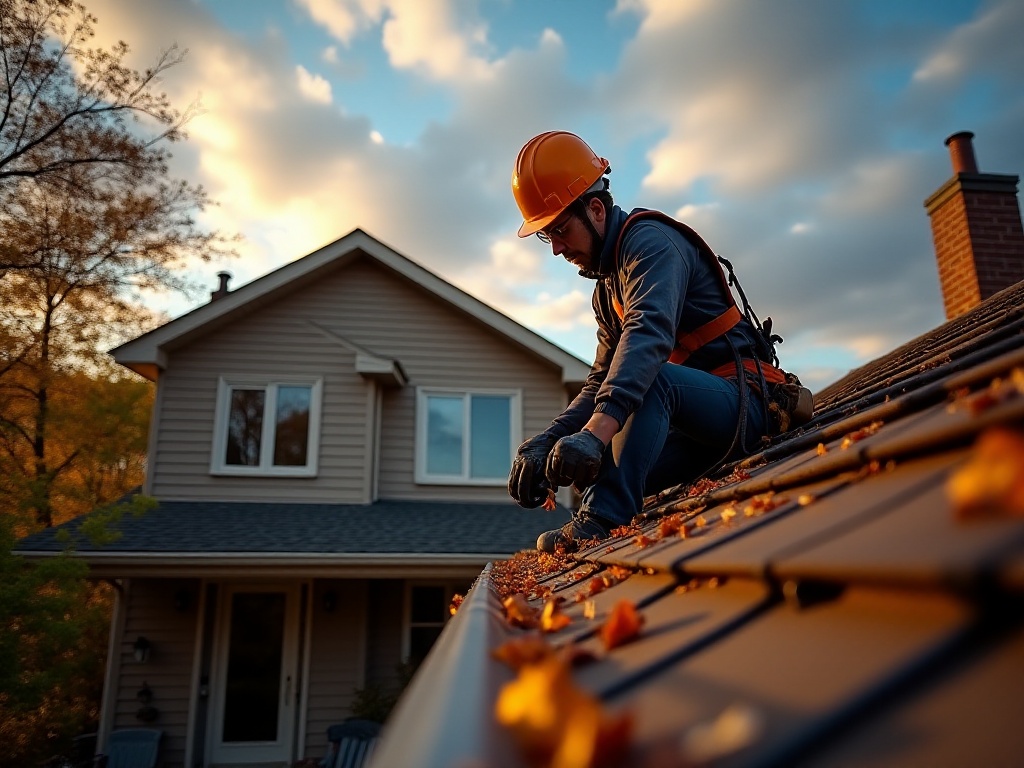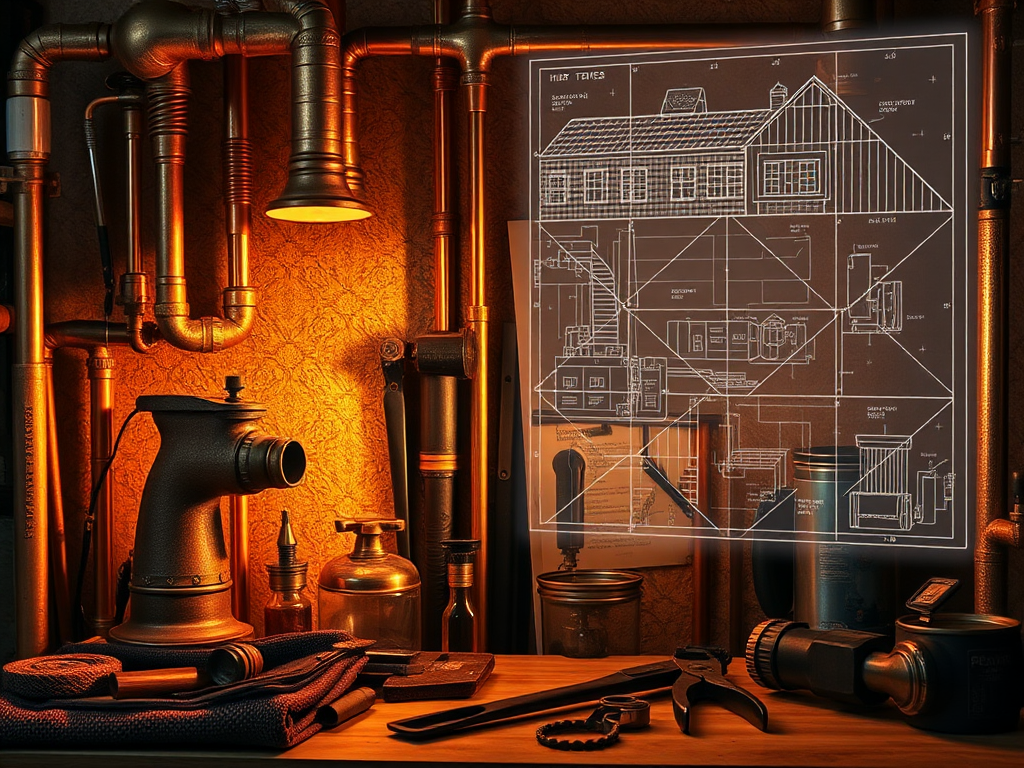Opening Thoughts
I still remember that night when I was watching the latest episode of "Life Without Limits" when I heard a "drip, drip" sound coming from the ceiling. At first, I thought it was my imagination until a drop of water hit my forehead. At that moment, I broke down. What was even more frustrating was discovering a patch of green mold in the corner of the wall the next morning, looking like an unsightly watercolor painting.
As a "veteran" who has rented six times and experienced various household accidents including water leakage, power trips, and pipe blockages, I deeply understand one principle: prevention is better than cure. Now I want to share all the pitfalls I've encountered and the experience I've gained to help you avoid those frustrating household issues.
Prevention
To be honest, when I first started renting, I knew nothing about home maintenance. It wasn't until I experienced several late-night water leakages and midnight power trips that I realized the importance of regular inspections. Now, the 15th of every month is my unwavering "home checkup day." Starting from the entrance, like completing a game mission, I carefully inspect the entire residence following a fixed route.
Safety equipment is absolutely crucial. A January 2024 report from the Beijing Fire Department shocked me: over 60% of household fires occurred because smoke detector batteries weren't replaced on time or fire alarms weren't regularly checked. That number is terrifying! So now I have monthly check reminders marked in my phone calendar. The inspection method is super simple - just press the test button on the smoke detector. If it makes a loud "beep" sound, everything is normal.
When it comes to electrical safety, there's a lot to learn. According to State Grid's 2023 statistics, 35% of household electrical fires are caused by aging wires. This reminds me of my friend's experience last year - his wires were compressed under a sofa for half a year, and one day they suddenly caught fire, fortunately discovered early. Since then, I check all outlets and switches carefully every month. Yellowing or hot outlets are like red flags in dating - you need to be alert when you see them. I especially want to remind everyone that hiding wires under furniture for aesthetic purposes during renovation is really dangerous.
Here's a small tip I've figured out for circuit inspection: use the back of your hand to lightly touch the outlet. If it feels warm, be careful. Normal working outlets should be at room temperature or slightly below. I also take photos of suspicious spots with my phone for comparison observation. Last year, I discovered a progressively yellowing outlet through before-and-after photo comparison and avoided a potential fire by replacing it in time.
Safety hazards often hide in the details. For example, all my wire management now uses cable organizers, which not only looks neat but also prevents wires from tangling and getting damaged. During Chinese New Year, many people like to put up decorative lights everywhere - that's when you need to be especially careful not to overload power outlets. Last year, my cousin's house almost caught fire because too many decorative lights were connected to one outlet.
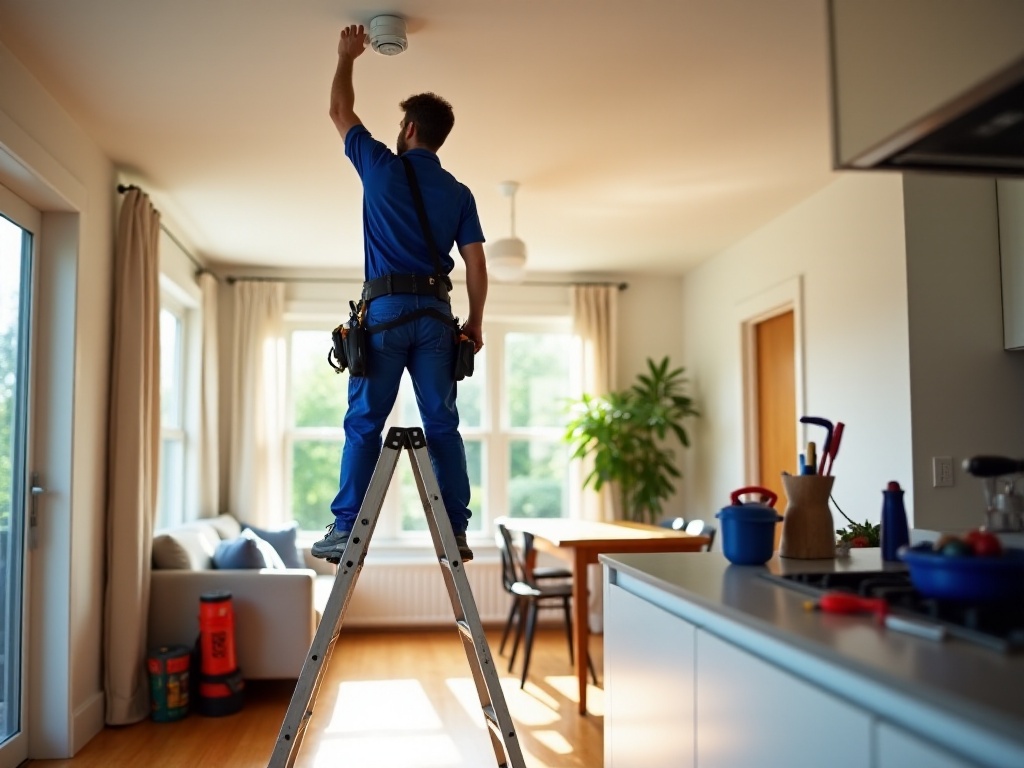
System Maintenance
Air conditioning system maintenance is definitely a major issue that many young people tend to overlook. I used to be the type who thought "as long as it works," until last summer when the AC suddenly broke down, and the repair technician said regular maintenance would have prevented this. Data from an appliance repair platform shows that 90% of AC failures could actually be prevented through regular maintenance. This statistic really shocked me.
Now I take extra care of my AC. I give it a "bath" every two weeks in summer and monthly in winter. Cleaning the filter is actually very simple, just like washing your face. First use a vacuum cleaner to remove dust from the filter, then rinse with clean water, and finally let it dry before putting it back. You might not believe it, but such a simple operation can save you quite a bit on electricity bills. Statistics show that regular filter cleaning can reduce electricity consumption by 15-20%. That adds up to saving at least several hundred yuan a year.
Another important detail in AC maintenance is checking the refrigerant pipes. You can feel them with your hand - if there's frost, it might indicate a refrigerant leak. Also, the outdoor unit needs to be well-ventilated, not blocked by debris. I made this mistake before, piling stuff next to the outdoor unit, which resulted in a sharp decline in AC efficiency.
Plumbing system maintenance is also a big subject. The most common problem is decreasing water flow from faucets. Many people's first reaction is to complain to property management about low water pressure, when it's often caused by scale buildup. Now I soak faucet outlets in white vinegar every three months, which works really well. The specific method is to pour vinegar into a small bag, then tie it to the faucet with a rubber band and soak overnight. The next morning when you turn on the faucet, the water flow is strong, just like new.
Speaking of checking for water leaks, I have a special trick. Use toilet paper or kitchen paper to gently wipe the pipe joints - if the paper becomes wet or discolored, there's a leak. This method is especially suitable for checking pipe joints that are hard to see. I also regularly check the toilet seal, as this is another common place for leaks.
Water heater maintenance shouldn't be neglected either. I have an electric water heater, and I drain it completely every six months to clean out the scale settled at the bottom. For gas water heaters, it's recommended to have professional inspection annually, mainly to check for leaks or blockages in the gas and exhaust pipes.

External Inspection
Regarding external inspection, many people think it's the property management's responsibility. But I believe it's better to discover problems ourselves rather than waiting for property management to find them. It's especially necessary to check the roof and drainage system before the rainy season.
According to 2023 statistics from the Ministry of Housing and Urban-Rural Development, 40% of house leakage problems are caused by blocked drainage systems. This reminds me of a heavy rain last summer when several households in our community experienced leaks due to blocked downspouts. Since then, I've developed a habit of regular inspections.
Checking downspouts is actually very simple - you can use a hose to flush water into them on a sunny day to see if drainage is smooth. If you find the water flow is sluggish, you can try using a thin bamboo pole or plastic rod to gently clear it. Of course, if the problem is serious, you should still call professionals.
External wall inspection is also important, especially around balconies and windows. I regularly check these areas for cracks or water seepage marks. If problems are found, it's best to deal with them promptly, otherwise it'll be troublesome when the rainy season comes. My neighbor once ignored a small crack on their balcony, and during heavy rain, their entire living room was affected.
Regarding windows, I want to especially remind everyone to regularly check the window seals. Many draft and water leakage problems start here. The inspection method is simple - just feel around the window with your hand. If you can feel air leaking in, the seal might be deteriorating.
Balcony drains are also problem areas, especially during seasons with lots of falling leaves. I now regularly clean leaves and garbage around the balcony drain. Once I found a small plant growing in the drain - if not discovered in time, the consequences would have been unimaginable.
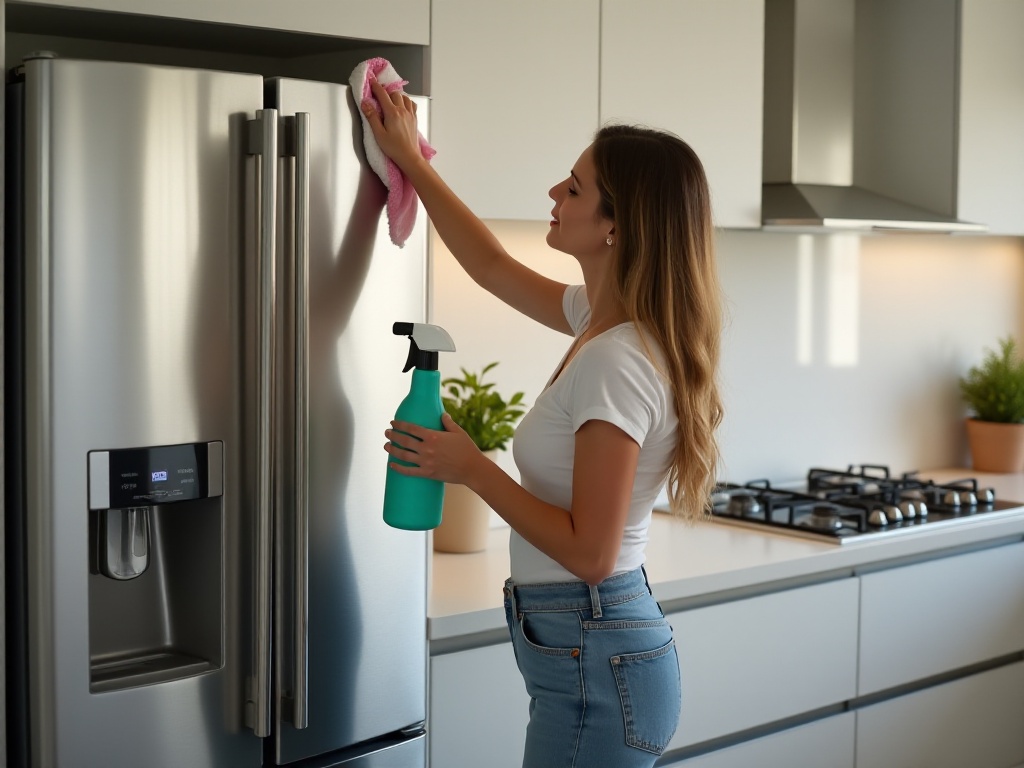
Daily Cleaning
Kitchen cleaning is definitely the most challenging, especially cleaning the range hood. Honestly, it's really annoying, but considering that 90% of kitchen fires are related to untimely range hood cleaning, I have to take it seriously.
Now I give the range hood a thorough cleaning every month. First remove the grease filters and soak them in hot water with some dish soap for about 20 minutes. Then gently scrub with a brush, and the grease comes off easily. Cleaning the fan requires more attention - I spray special cleaner on the fan blades, wait a few minutes, then wipe with a damp cloth. This not only removes grease but also prevents grease from hardening.
Gas stove cleaning is also important. I regularly check if the gas ports are blocked by grease, as this not only affects gas efficiency but could also cause carbon monoxide poisoning. When cleaning, you can gently clear the ports with a toothpick, but be very careful not to damage them.
Cabinet interior cleaning shouldn't be neglected either. Every three months, I empty the cabinets and wipe the interiors with vinegar water to prevent mold growth. The cabinet under the sink especially needs frequent attention because it's often damp.
As for bathroom cleaning, I have deep experience. Previously, due to neglect, the tile grout turned black with mold, which looked terrible. Now I wipe the grout with bleach weekly, then dry it with a hair dryer. Although this method is time-consuming, it really works well.
Shower heads also need regular cleaning because they easily accumulate scale. My method is to soak the shower head in white vinegar for several hours, which makes the scale fall off automatically. If the shower head can be disassembled, it's best to clean it apart for better results.
Toilet cleaning also has its techniques. Many people only focus on cleaning the inside of the toilet, but the base and connections also need regular wiping. I carefully wipe these areas with disinfectant wipes weekly, which not only keeps things clean but also helps detect any leaks early.
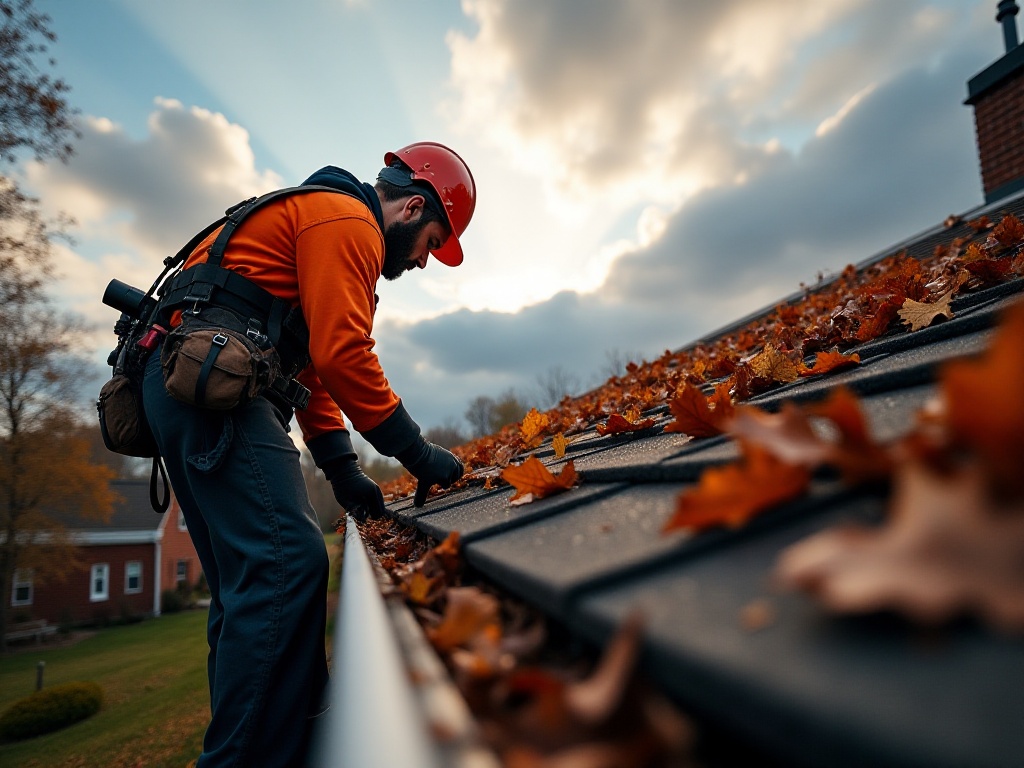
Final Words
To be honest, when I first started implementing these maintenance plans, I also found it very troublesome. But gradually, these tasks became a habit. Now, every time I complete the inspection and cleaning work, seeing the refreshed home makes me feel particularly good.
Most importantly, through this regular maintenance, I've really saved a lot on repair costs. Previously I had to call repair technicians frequently, but now I can solve many small problems myself. Moreover, a well-maintained home is really comfortable to live in.
If you have any unique home maintenance tips, feel free to tell me in the comments. Maybe your experience can help others. Next time I plan to share how to create an efficient storage system to keep your home forever neat and organized. Remember to follow me, and I'll see you next time!
Related articles


